Police In Iran Clamp Down On Street Book Vendors
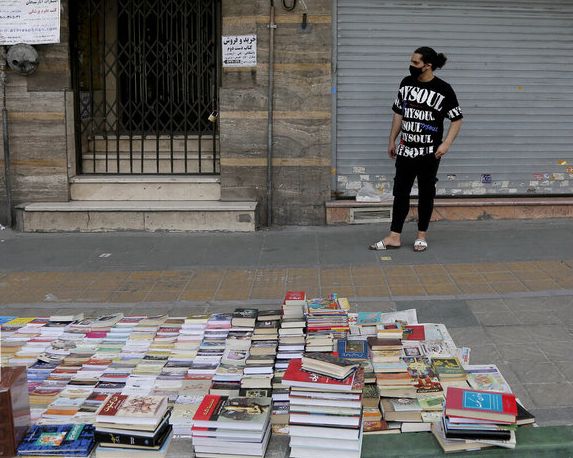
Police in Iran have started to clamp down on street book vendors in recent days, saying they reduce the profit margins of legal bookstores.

Police in Iran have started to clamp down on street book vendors in recent days, saying they reduce the profit margins of legal bookstores.
On a main Tehran street, where street booksellers traditionally display their selections on sidewalks, police on October 2 forced many to take their books and leave. Citizens began reacting on social media, condemning the police action.
Government-controlled media has begun defending the decision to ban street book stands, arguing that these vendors make more money than official bookstores.
But many say the real reason is the banned books offered by street vendors that regular bookstores are not allowed to sell. One example mentioned even by authorities is books about Iran’s monarchy, which the Islamic Republic is extremely sensitive about.
For a book to be published in Iran there is a lengthy authorization process, with government censors carefully reviewing the content and making notes of what pages or paragraphs break the regime’s ideological or political red lines.
The government also argues that street booksellers offer illegal copies of published books, which in some cases might be true, but they generally sell used books for lower prices.
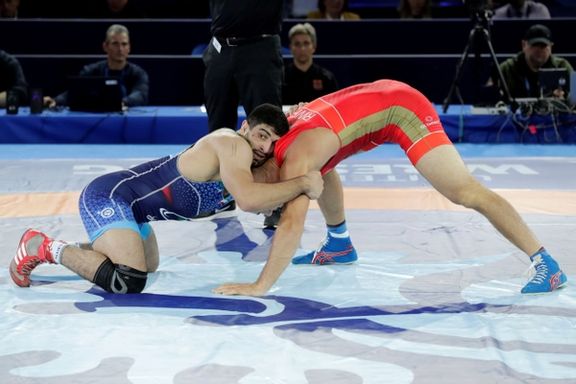
Mixed fortunes for Iran on the third day of the Wrestling World Championships in Oslo, Norway, with gold finally coming at the fourth time of asking.
Iranian wrestlers featured in all of the night's gold medal matches, but it wasn't until the heavyweights took to the matt, that Iran could celebrate gold medal in a confident match.
In the first final, the 57kg class, American Thomas Gilman outclassed Iran's Alireza Nosratolah Sarlak, while Russia's Zagir Shakiev won a battle of attrition with Amirmohammad Babak Yazdanicherati in the 65kg event.
Mohammad Ashghar Nokhodilarimi also had to settle for silver in the 79kg division after losing 5-1 to America's Jordan Burroughs.
In the final match of the night Kamran Ghorban Ghasempour faced off against Magomed Guseynovitch Kurbanov of Russia.
He started well and never looked as if he was going to lack strength, going on to win 8-4.
Report by AP
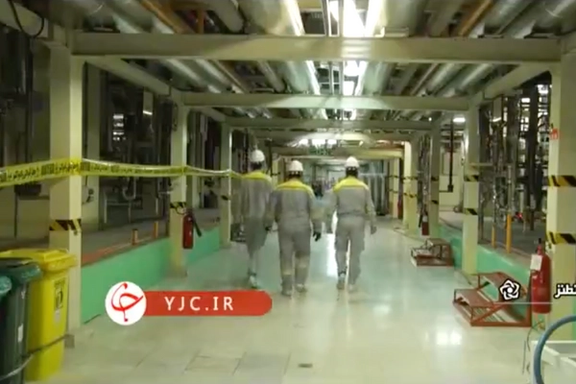
Top US officials will tell their Israeli counterparts on Tuesday that the Biden administration remains committed to diplomacy with Iran, but if necessary would be prepared to pursue "other avenues" to ensure Tehran does not acquire a nuclear weapon, a senior US official said.
A visit to Washington by Israel's national security adviser, Eyal Hulata, will allow the two allies to share intelligence and develop a "baseline assessment" of how far Tehran's nuclear program has advanced, the official said.
Under a 2015 deal, Iran curbed its uranium enrichment program, a possible pathway to nuclear arms, in return for the lifting of economic sanctions. Then-President Donald Trump quit the deal in 2018 and the Israeli government opposes US efforts to revive it.
In broad terms, US experts believe the time it would take Iran to achieve nuclear "breakout" – enough enriched uranium to build a nuclear bomb – has "gone from about 12 months down to a period of about a few months" since Trump pulled out of the pact, the official said, speaking on condition of anonymity.
"Obviously that is quite alarming," the official told reporters ahead of Hulata's talks with US national security adviser Jake Sullivan.
Iran has consistently denied it is developing nuclear weapons.
Echoing President Joe Biden's comments in a White House meeting with Israeli Prime Minister Naftali Bennett in August, the official said: "We of course remain committed to a diplomatic path."
"But obviously if that doesn't work there are other avenues to pursue, and we are fully committed to ensuring that Iran never develops a nuclear weapon."
Asked what actions were under consideration and whether that included military options, the official said "we'll be prepared to take measures that are necessary" but did not elaborate.
The official said that Iran was "sending indications to a number of parties that they are preparing to come back to Vienna," where the United States and Iran held indirect talks earlier this year that stalled.
But signaling that obstacles remain, Iran's foreign minister said on Saturday that the United States must first release $10 billion of Tehran's frozen funds as a sign of good will, something the Biden administration has shown no willingness to do.
Bennett, a far-right politician who ended Benjamin Netanyahu's 12-year run as prime minister in June, has made clear he wants Biden to harden his stance against Iran, Israel's regional arch-foe.
There is also disagreement over Biden's opposition to further expansion of Jewish settlements on occupied land that the Palestinians want for a future state.
Asked whether the issue would be part of Tuesday's talks, the U.S. official said Israel was well aware of the administration's view of the need to refrain from actions that could be seen as "provocative" and undermine efforts to achieve a two-state solution between Israel and the Palestinians.
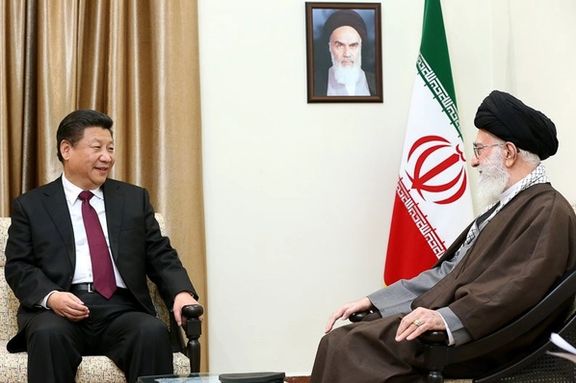
Fars news agency, an affiliate of Iran’s Revolutionary Guards, has run a series of articles exploring China’s help in combating United States oil sanctions.
Under the rubric ‘Eastern Puzzle,’ Fars has argued that US sanctions are part of a wider scheme to restrict China's access to crude from the Persian Gulf − and that China in response is ready to help Iran to improve its own energy security.
"Given the successful experience of Iran's cooperation with China during the ninth and tenth administrations [of President Mahmoud Ahmadinejad, 2005-13] in circumventing US sanctions, it appears that after eight years of coldness in the relations between the two countries, signing strategic and key energy, transit and investment contracts and agreements will soon be on the agenda again," Fars said in one article, published September 29.
The "eight years of coldness in relations" according to Fars marked the two terms of Hassan Rouhani's presidency when hardliners in Iran campaigned against him for being pro-West, while former US president Donald Trump walked away from the 2015 nuclear deal and imposed heavy sanctions on Iran.
President Ebrahim Raisi has stressed that his policy is to deepen ties with China and Russia. "The 13th administration has from first day put two things at the top of its agenda, one is giving priority to reinforcing relations with eastern countries, China and Russia in particular, and the second is adopting a strong position regarding the nuclear case," Fars wrote Monday.
Withstanding pressure
Supreme Leader Ali Khamenei has also for a few years taken up the catchphrase “Looking East.” In a speech February 13, 2021, he said that in resisting "US unilateralism," Iran should look to the east to achieve a "resistance economy" that could withstand US economic pressures.
Fars supported its argument that US sanctions were aimed in part to "harness China" with economist Majid Shakeri saying in one article in the series that "those who follow the issue…closely have admitted that since 2019 the US sanctions have been targeting not Iran's oil exports, but China's oil imports from Iran."
While imports from Iran are a small part of Bejing’s 9.7 million barrels a day (bpd) of crude imports − even before US ‘maximum pressure’ sanctions China imported only around 1 million bpd from Iran − Beijing takes the view that the trade is perfectly legal and recently condemned the US’s “long arm jurisdiction.”
US Wants China To Cut Back
The US has reportedly of late asked China to cut back on Iranian crude imports, which continued after 2018 while other buyers, in both Asia and Europe, desisted in fear of likely US measures against any entity buying Iranian crude. Chinese imports are disguised to avoid US scrutiny, but commodity analytics firm Kpler estimated they averaged 553,000 bpd in 2021 up to the end of August.
Fars noted that payment methods involved bartering oil with commodities or investment, international money exchangers, using small banks in China that the US cannot easily monitor, and payment in the Chinese yuan.
Fars suggested that with the help of Chinese customs Iran's oil exports now exceeded 1 million bpd. "If the Iranian government adopts a correct strategy in its dealings with China, the Chinese can offer considerable assistance to Iran in circumventing sanctions and selling its oil," the agency noted on September 29.
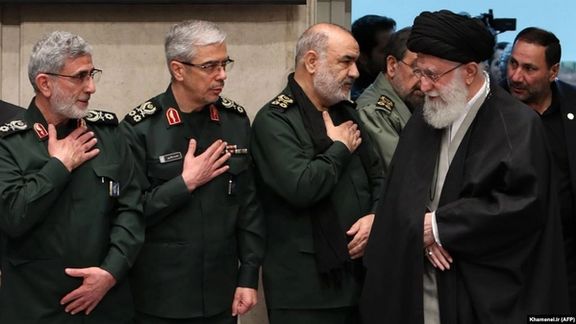
The Office of Israel’s Prime Minister Naftali Bennett on Monday announced the thwarting of an Iranian terror plot targeting Israeli businessmen in Cyprus.
Such operations come as no surprise, as similar incidents were uncovered in recent years. But the Cyprus ploy is notable for three reasons: Tehran’s Axis of Resistance’s history of using Cyprus as a launchpad; the Iranian focus on targeting Israeli businessmen worldwide; and the nationality of the suspect in question.
Cyprus has often served as a platform for Iran’s Axis of Resistance to target Israel in the past. In 2012, Israel accused Tehran and the Party of God of complicity in a plot to target Israelis in Cyprus. Fast forward to 2015, when Cyprus imprisoned a Hezbollah operative after he was arrested in May of that year in possession of 8.2 tons of ammonium nitrate fertilizer, which was in a house in Larnaca.
Indeed, the timing of the operation is also important to consider. It follows a report over the summer by El Tiempo, a leading Colombian newspaper, about how Colombian intelligence uncovered a complex Iranian terror plot which also targeted Israeli businessmen in the country. The plot was allegedly masterminded by a Quds Force operative Rahmat Asadi, who reportedly criminally outsourced the gambit. Israeli media also reported on Monday about an attempt by Iran to target the car of an Israeli diplomat in Baku, Azerbaijan’s capital. This followed reports in February of Iranian operatives casing US, Israeli, and Emirati embassies in East Africa for potential attacks and another episode in India in January, which featured a low-intensity explosion near the Israeli embassy in New Delhi.
The uptick in these plots is reminiscent of the state of play in 2012, when multiple attempted or actualized attacks took place in Azerbaijan, Bulgaria, Cyprus, Georgia, India, Kenya, and Thailand, targeting Israeli interests. It’s not only the pace, but also the places which are evocative of the events from 2012. Azerbaijan, Cyprus, India, and Africa all appear to be choice locales for the Axis of Resistance, given perceived freedom of movement or permissive environments for such illicit activity. Tellingly, Israel issued a travel warning for some of these same places back in December.
Additionally, back in 2012, Israel’s reported assassinations of Iranian nuclear scientists coupled with the killing of senior Hezbollah commander Imad Mughniyeh provided the backdrop. Almost ten years later, in 2021, the assassinations of former Quds Force Commander Qassem Soleimani and the late Deputy Defense Minister and the father of Iran’s past nuclear weapons program Mohsen Fakhrizadeh likely fuel Iranian motivation for these daring schemes. This is not to mention the repeated sabotage operations against Iranian nuclear facilities over the past year.
Lastly, the suspects in all three cases in Cyprus were non-Iranian foreign nationals. In 2012, it was a Swedish passport holder of Lebanese descent. In 2015, Hussein Bassam Abdallah, with Canadian and Lebanese nationality, was arrested. In the current case, initial reports indicate the suspect is Azeri with a Russian passport. Such a modus operandi enables freedom of movement as well as masks Iranian fingerprints. The Azeri nationality of the suspect also raises questions given the ongoing tension between Azerbaijan and Iran, in part, over Baku’s relations with Israel, as well as whether Iran outsourced the hit to a criminal syndicate, as it did in Colombia.
In the end, Tehran appears to be resorting to a familiar playbook of undertaking multiple plots in countries that are vulnerable to infiltration in the context of repeated Israeli operations targeting its nuclear program. 2021 is looking very much like 2012.
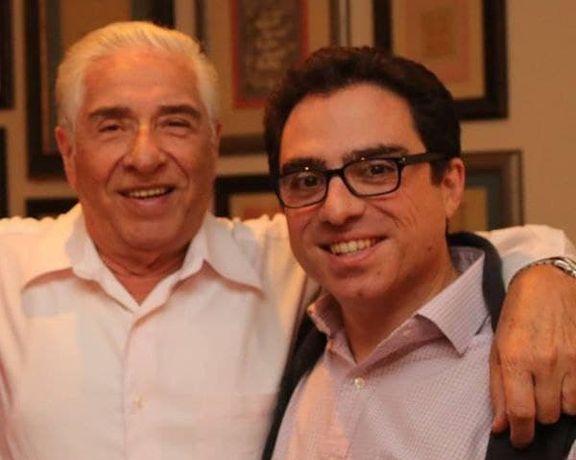
Lawyers for an 84-year-old Iranian American, who was formerly imprisoned by Iran and whose son remains jailed there, urged Tehran on Monday to let him leave the country for medical care, saying he needs immediate surgery for an arterial blockage.
Baquer Namazi was convicted of "collaboration with a hostile government" in 2016 and sentenced to 10 years in prison. Iranian authorities released him on medical grounds in 2018 and closed his case last year, commuting his sentence to time served.
However, his son, Siamak Namazi, 49, remains in prison in Iran after being convicted of the same charge. The U.S. government has described the charges against both as baseless.
Iranian Americans, whose U.S. citizenship is not recognized by Tehran, are often pawns between the two nations, now at odds over whether to revive a fraying 2015 pact under which Iran limited its nuclear program in return for sanctions relief.
In a letter to the U.N. Special Rapporteur on the Right to Health, a lawyer for the family, Jared Genser, said the elder Namazi needed immediate surgery for a 95%-97% blockage in one of his internal carotid arteries, which supply blood to the brain.
It cited one physician as saying he required surgery within seven to 10 days and it argued this must be performed outside Iran both because recovery requires a stress-free environment and because Iranian hospitals are struggling with COVID-19.
The Iranian mission to the United Nations did not immediately respond to a request for comment.
Genser said Namazi has been under an effective international travel ban since his case was closed, arguing that this, as well as his prior treatment by Iranian authorities, constitutes a violation of his "right to health" under the International Covenant on Economic, Social and Cultural Rights.
Genser asked the special rapporteur to investigate and to urge Iran to let Baquer Namazi travel abroad for treatment. He also told a virtual news conference he wanted U.S. President Joe Biden to "personally engage" to allow Namazi to travel.
"My dad is dying," another son, Babak Namazi, told Reuters by phone from Dubai.
"My father has already lost so much precious time," he told the virtual news conference, at times crying. "I am begging Iran to let him spend whatever small amount of time he has left with his family, my brother Siamak included."